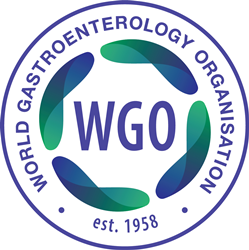
“…Most importantly, we want to ensure that we present information about the gut microbiome in a way that makes it clear what the benefits are and, in doing so, to counter misinformation about the gut microbiome.”
MILWAUKEE (PRWEB)
June 02, 2021
In celebration of the 2020 World Digestive Health Day (WDHD) theme, “Gut Microbiome: A Global Perspective”, the World Gastroenterology Organisation (WGO) is pleased to announce the release of the Gut Microbiome handbook. Led by the WDHD co-chairs, Dr. Eamonn M. M. Quigley and Dr. Uday C. Ghoshal, the handbook is a collaboration of scientific articles from experts throughout the world focusing on topics pertaining to the gut microbiome.
As an extension of the 2020 campaign, which aimed to “provide those who care for individuals afflicted by gastrointestinal disorders, as well as the lay public with an understanding of the latest basic and clinical research in the gut microbiome and what it means for their well-being”, the handbook will further “inform physicians, pharmacists, allied health professionals, healthcare payors, and the public of the importance of the gut microbiome to overall health. Most importantly, we want to ensure that we present information about the gut microbiome in a way that makes it clear what the benefits are and, in doing so, to counter misinformation about the gut microbiome.”
This digital publication is available to all and can be accessed and downloaded by visiting http://www.worldgastroenterology.org/wgo-foundation/wdhd/wdhd-2020.
WDHD OVERVIEW
The first World Digestive Health Day (WDHD) was held on 29 May 2005. Since then, the WGO annually celebrates WDHD by initiating a yearlong, worldwide, public health campaign, spotlighting a particular digestive disease or disorder to increase public awareness of the prevention, prevalence, diagnosis, management, and treatment of the disease or disorder worldwide. By increasing awareness worldwide of the role that the gut microbiome may have in diagnosis, and how it can be modulated to treat disease and allay symptoms, we can affect overall human health and, in particular, among low- and middle-income countries.
The human gut microbiome contains tens of trillions of microorganisms and over 1,000 known species of bacteria, which have many important functions within the human body. Not surprisingly, there has been considerable interest and even more speculation on the role that gut microorganisms might play in health and disease. Gastroenterologists are frequently called upon to interpret, on behalf of their patients, the latest findings from basic and clinical research. To help sift through and assess the vast, complex, at times confusing, and ever-increasing body of literature and provide some guidance to the practicing clinician and their patients, the WGO selected the Gut Microbiome as the focus of the 15th Annual 2020 WDHD.
Interested in organizing an activity or event around WDHD? Please visit http://www.worldgastroenterology.org/wgo-foundation/wdhd, Facebook, Twitter, or Instagram @WorldGastroOrg for more information.
ABOUT THE WORLD GASTROENTEROLOGY ORGANISATION
Incorporated in 1958, the World Gastroenterology Organisation (WGO) is a federation of 117 member societies and 4 regional associations in gastroenterology, hepatology, endoscopy, and other related disciplines, representing over 50,000 individuals worldwide, focusing on the improvement of standards in gastroenterology training and education on a global scale. WGO’s mission is to promote, to the general public and healthcare professional alike, an awareness of the worldwide prevalence and optimal care of gastrointestinal and liver disorders, and to improve care of these disorders, through the provision of high quality, accessible and independent education and training.
#####
Share article on social media or email:

